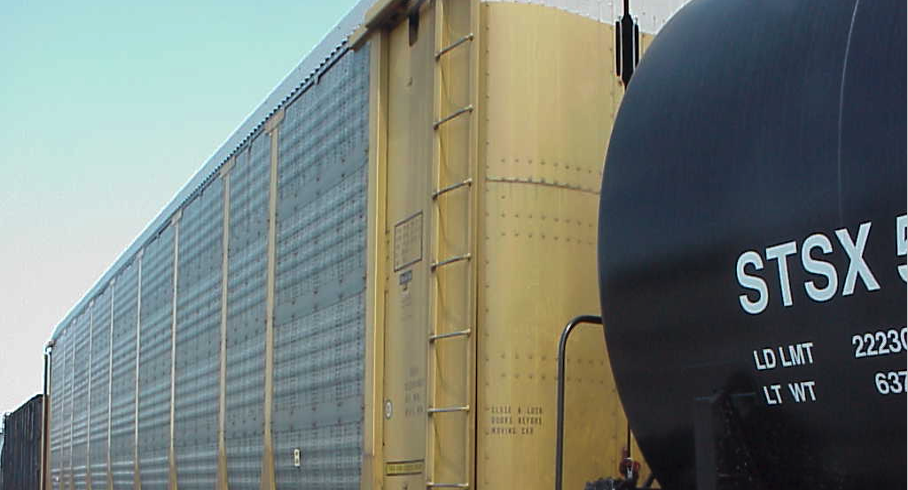Today, the Supreme Court of the United States denied Grand Trunk’s application for review of a jury’s decision in favor of a railroad worker who suffers from laryngeal cancer and chronic obstructive pulmonary disease (COPD) from his occupational exposures to diesel fumes, diesel exhaust and asbestos.
In November of 2008, Doran and Murphy lawyers, Christopher Murphy and Michael Torcello successfully represented Bill Shepard, a Locomotive Engineer from Toledo, Ohio at his trial for injuries caused by his railroad exposure to diesel exhaust and asbestos. The worker was employed by the Detroit & Toledo Shoreline Railroad and the Grand Trunk Western Railroad from 1950 until 1991. He brought suit in Cuyahoga County, Ohio alleging that his exposure to asbestos and diesel exhaust on Defendants’ locomotive engines had caused or contributed to his throat cancer and his chronic lung disease. The plaintiff, who was seventy-nine years old was a former cigarette smoker.
The locomotive engineer alleged that his exposure to asbestos and diesel fumes while working in a roundhouse and in the locomotive as a road engineer contributed to the development of his cancer, as did his own cigarette smoking.
The railroad argued that the railroad worker’s current state of health was related only to his long history of cigarette smoking and that his railroad exposures had in no way aggravated that condition. Additionally, the railroad contended that the engineer was never exposed to harmful levels of dust or fumes in his work for the railroad. An expert witness testified that the railroad was aware of the hazardous nature of the asbestos and diesel exhaust and failed to protect him from those exposures.
The jury awarded damages in the amount of $872,000 finding that by exposing the worker to asbestos and diesel exhaust throughout his railroad career, the railroad had violated the FELA, and also the Locomotive Inspection Act. Consequently, the railroad was liable for the full amount of damages even though the railroad worker did have a long history of smoking cigarettes. The railroad immediately appealed the jury’s verdict.
The verdict was upheld by the Eight District Court of Appeals of Ohio on April 29, 2010. The railroad appealed the verdict claiming that the trial court had committed numerous errors of law which caused the jury to reach the wrong conclusion. At least two of these claimed mistakes of law are important to railroad workers everywhere and the decision of this appellate court further solidifies the position of all rail workers claiming that they have developed lung disease or cancer through their railroad exposures to diesel exhaust, asbestos or other dangerous toxins.
First, the railroad claimed the injured railroader had failed to file his lawsuit within the FELA’s three year statute of limitations. The FELA allows rail workers to file a lawsuit within three years of the time they find out that their injury or disease may have been related to their work. The railroad claimed that just because the worker had been diagnosed with lung disease and cancer many years ago, his time to bring a lawsuit under the FELA had expired. The Ohio appellate court made clear that the railroad’s position was incorrect because the railroader had testified that, while he knew what asbestos was, and knew he was working with and around asbestos, he did not know that asbestos or diesel exhaust was harmful while working. Importantly, the Doran & Murphy lawyers were able to show that the railroad never provided any warnings or indications to its employees that asbestos and diesel exhaust are dangerous. The law on this issue remains that when a rail employee does not know or have reason to know that his disease could be related to his work, the statute of limitations cannot bar his claim. Consequently, whenever there is a question about whether or not a railroad worker’s time to file a FELA action has expired, that question can only be answered by experienced FELA attorneys.
Second, and even more importantly, the appellate court reaffirmed the protections afforded railroad workers by the Locomotive Inspection Act. This law makes it a violation of federal regulations for a rail employee to be exposed to diesel exhaust while working inside of a locomotive cab. Further, when an employee is exposed to diesel exhaust inside the cab, and he later develops lung disease or cancer, he can bring a FELA lawsuit against the railroad, even if he was a cigarette smoker. This worker smoked cigarettes for many years prior to his diagnosis and the jury found that his smoking was partly responsible for causing his cancer. However, because the jury found that the LIA had been violated, the appellate court ruled that the worker should receive the full amount of damages awarded by the jury, with no reduction for his cigarette smoking.
The railroad appealed the appellate court’s decision to the Supreme Court of Ohio, who declined to hear the case on October 13, 2010.
The railroad then appealed this decision to the Supreme Court of the United States. Today, June 28, 2011, the Supreme Court of the United States denied the railroad’s application and will not hear the case. You can see the order denying the railroad’s application at http://www.supremecourt.gov/orders/courtorders/062811zr.pdf. This is a great victory for railroad workers everywhere. It was a long road for our client, but the attorneys at Doran & Murphy are proud to have been a part of his victory, from the trial court all the way through the Supreme Court of the United States.





